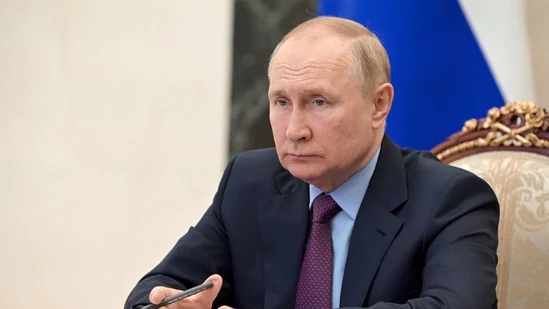The International Criminal Court (ICC) issued an arrest warrant for Russian President Vladimir Putin on March 17th over alleged war crimes in Ukraine concerning the deportation and unlawful transfer of children from occupied Ukraine.
Pre-Trial Chamber II of the ICC has also issued an arrest warrant for Maria Alekseyevna Lvova-Belova, Russian Commissioner for Children’s Rights, who has been the face of a Kremlin-sponsored programme in which Ukrainian children have been taken to Russia.
Situation in #Ukraine: #ICC judges issue arrest warrants against Vladimir Vladimirovich Putin and Maria Alekseyevna Lvova-Belova
Read more ⤵️
https://t.co/5OMC7Xuuy5— Int'l Criminal Court (@IntlCrimCourt) March 17, 2023
The statement of the ICC flagged: “There are reasonable grounds to believe that each suspect bears responsibility for the war crime of unlawful deportation of population and that of unlawful transfer of population from occupied areas of Ukraine and the Russian Federation, in prejudice of Ukrainian children.”
The allegations are in accordance with Article 8 of the Rome Statute; however, both Ukraine and the Russian Federation are non-parties of the Rome Statute.
Henceforth, Moscow, repeatedly denying all the accusations of all the atrocities committed by its forces, said the move was meaningless as it is not a party to the court.
What is the role of the International Criminal Court?
Created in 2002 in accordance with the Rome Statute, which was signed on July 17th, 1998.
The independent and permanent judicial body investigates and prosecutes war crimes, crimes against humanity, genocide, and crimes of aggression.
This bold move by the Court will obligate its 123 member states to arrest Putin if he travels to a state that is a party to the ICC. Then transfer him to The Hague, the tribunal’s headquarters, given that the tribunal has no police force of its own and relies on member nations to make arrests.
Stephen Rapp, a former ambassador at large heading the Office of Global Criminal Justice in the US State Department, stated: “This makes Putin a pariah. If he travels, he risks arrest. This never goes away.”
“Russia cannot gain relief from the sanctions without compliance with the warrants,” he added.
What are the allegations?
The chief prosecutor of the ICC, Karim A.A. Khan, flagged the deportation of a significant number of children from orphanages, as mentioned in the statement on Friday: “Many of these children, we allege, have since been given for adoption in the Russian Federation.”
He added that these acts of atrocity “demonstrate an intention to permanently remove these children from their own country. At the time of these deportations, the Ukrainian children were protected persons under the Fourth Geneva Convention.”
Important step
Human rights organizations like Amnesty International hailed the move and called it an “important signal.”
In addition, Andriy Kostin, the top Ukrainian prosecutor, called the ICC move a “historic decision for Ukraine and the entire international law system.” The trial appears largely inconceivable in the present scenario. However, one cannot negate the fact that, theoretically, such moves eventually lead to trials.

